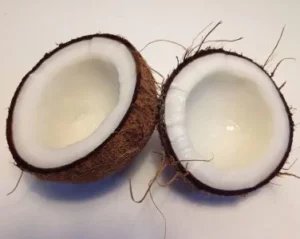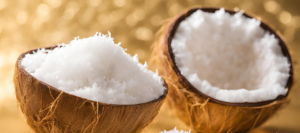1. Understanding Global GAP Certification for Coconuts
1.1. What is Global GAP?
Global GAP (Good Agricultural Practices) is an internationally recognized standard for farm production. It’s a comprehensive certification system that ensures food safety, environmental sustainability, and worker welfare in agricultural practices.
1.2. The certification process for coconut farms
Coconut farms seeking Global GAP certification undergo a rigorous process. This includes an initial self-assessment, implementation of required practices, and a third-party audit. The process can take several months to complete, depending on the farm’s initial state.
1.3. Key requirements for Global GAP coconut certification
To achieve certification, coconut farms must meet specific criteria:
- Implement food safety measures
- Ensure worker health and safety
- Practice environmental conservation
- Maintain detailed records of all farming activities
2. Quality Assurance: The Cornerstone of Global GAP Certified Coconuts
2.1. Rigorous farming practices and their impact on coconut quality
Global GAP certification mandates strict farming practices that significantly improve coconut quality. These include:
- Proper soil management
- Controlled use of pesticides and fertilizers
- Optimal harvesting techniques
I’ve visited several certified coconut farms and was impressed by the meticulous attention to detail in every aspect of production.
2.2. Traceability and transparency in the supply chain
One of the key benefits of Global GAP certification is enhanced traceability. Each coconut can be traced back to its source, providing transparency throughout the supply chain. This level of detail gives importers confidence in the product’s origin and handling.
2.3. Consistent product standards across different suppliers
Global GAP ensures uniformity in production standards, regardless of the supplier. This consistency is crucial for importers who source from multiple farms, as it guarantees a reliable product quality across all shipments.
3. Food Safety Benefits for Importers
3.1. Reduced risk of contamination and recalls
By adhering to strict food safety protocols, Global GAP certified coconut farms significantly reduce the risk of contamination. This translates to fewer recalls and less financial risk for importers.
3.2. Compliance with international food safety regulations
Global GAP certification often meets or exceeds many international food safety standards. This makes it easier for importers to comply with regulations in various markets.
3.3. Enhanced consumer trust and brand reputation
Consumers are increasingly concerned about food safety. By sourcing Global GAP certified coconuts, importers can build trust with their customers and enhance their brand reputation.
4. Environmental Sustainability Advantages
4.1. Sustainable farming practices in coconut production
Global GAP certification promotes sustainable farming practices such as:
- Efficient water management
- Soil conservation techniques
- Biodiversity protection
These practices not only benefit the environment but also ensure the long-term viability of coconut production.
4.2. Reduced environmental impact and carbon footprint
Certified farms often have a lower environmental impact due to controlled use of chemicals and better resource management. This can help importers reduce their overall carbon footprint.
4.3. Meeting growing consumer demand for eco-friendly products
There’s a growing market for sustainably produced products. By sourcing Global GAP certified coconuts, importers can tap into this trend and meet consumer demand for eco-friendly options.
5. Economic Benefits for Importers
5.1. Potential for premium pricing and higher profit margins
Global GAP certified coconuts often command a premium price in the market. This allows importers to potentially increase their profit margins.
5.2. Access to new markets and discerning customers
Certification can open doors to new markets, particularly those with stringent quality and sustainability requirements. It also appeals to discerning customers who are willing to pay more for certified products.
5.3. Long-term supplier relationships and supply chain stability
Global GAP certification often leads to more stable, long-term relationships between importers and suppliers. This stability can result in more consistent supply and pricing.
6. Social Responsibility and Ethical Sourcing
6.1. Fair labor practices in certified coconut farms
Global GAP certification includes requirements for fair labor practices, ensuring workers are treated ethically and have safe working conditions.
6.2. Community development initiatives in coconut-producing regions
Many certified farms engage in community development initiatives, contributing to the overall well-being of coconut-producing regions.
6.3. Alignment with corporate social responsibility goals
Sourcing Global GAP certified coconuts can help importers meet their corporate social responsibility objectives, demonstrating a commitment to ethical and sustainable business practices.
7. Challenges and Considerations for Importers
7.1. Initial costs and investment in Global GAP certified coconuts
There can be higher initial costs associated with sourcing certified coconuts. Importers need to weigh these costs against the long-term benefits.
7.2. Adapting to stricter sourcing and documentation requirements
Global GAP certification comes with increased documentation and stricter sourcing requirements. Importers may need to adapt their processes to meet these standards.
7.3. Balancing certified and non-certified coconut supplies
Depending on market demand, importers might need to balance their supply between certified and non-certified coconuts. This can require careful inventory management.
Summary
Global GAP certified coconuts offer numerous benefits for importers, from enhanced food safety and quality to environmental sustainability and social responsibility. While there are challenges to consider, the long-term advantages often outweigh the initial investments, making certified coconuts a valuable option for many importers.
FAQs
1.How long does it take for a coconut farm to obtain Global GAP certification?
The process typically takes 3-6 months, depending on the farm’s initial conditions and readiness.
2. Are Global GAP certified coconuts more expensive than non-certified ones?
Generally, yes. The increased quality and sustainability measures often result in a higher price point.
3.Can Global GAP certification improve the shelf life of coconut products?
While not directly, the improved handling and quality control measures can contribute to better product quality and potentially longer shelf life.
4.How often do Global GAP certified farms undergo audits?
Certified farms undergo annual audits to maintain their certification.
5.Are there different levels of Global GAP certification for coconuts?
Global GAP offers a single level of certification, but there are additional voluntary add-ons that farms can pursue for specific areas of excellence.




